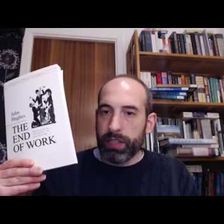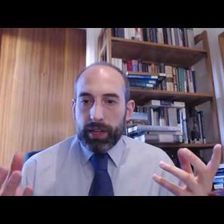Q&A#42 What is the Case Against Women's Ordination?

Today's question: "How would you summarize the argument against the ordination of women?"
If you found this video interesting, you might be interested in the videos from the recent THINK conference on The Future of Complementarity: http://alastairadversaria.com/2018/09/06/videos-from-the-think-conference-on-the-future-of-complementarity/.
If you have any questions, you can leave them on my Curious Cat account: https://curiouscat.me/zugzwanged.
If you have enjoyed these videos, please tell your friends and consider supporting me on Patreon: https://www.patreon.com/zugzwanged.
My new Soundcloud account is here: https://soundcloud.com/alastairadversaria. You can also listen to the audio of these episodes on iTunes: https://itunes.apple.com/gb/podcast/alastairs-adversaria/id1416351035?mt=2.
More From Alastair Roberts






More on OpenTheo















